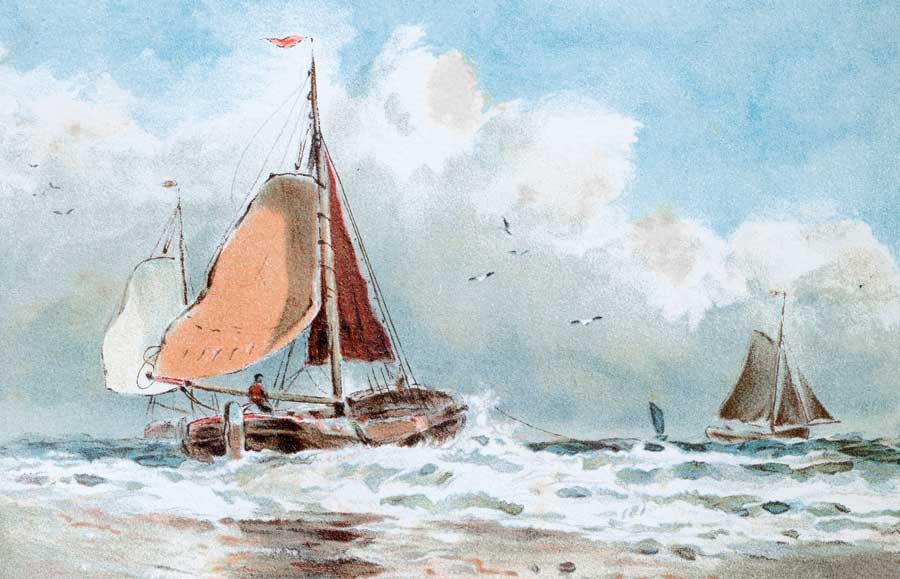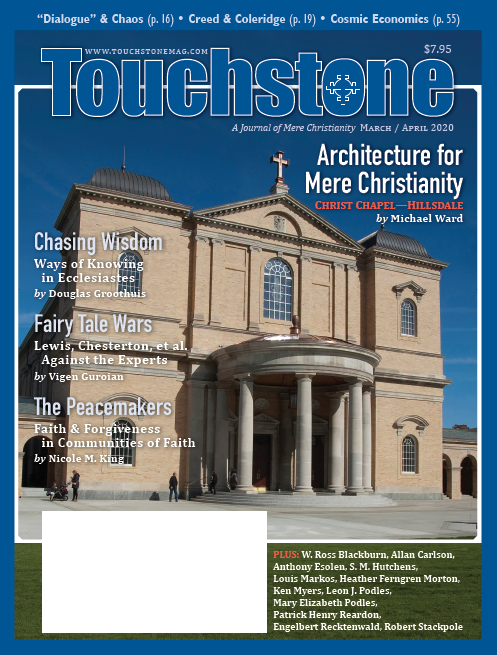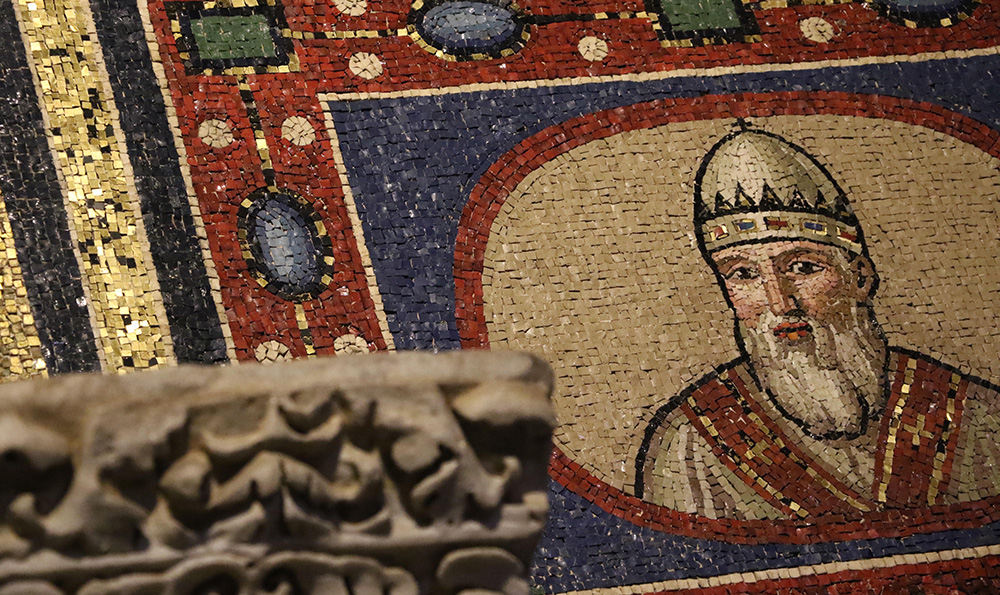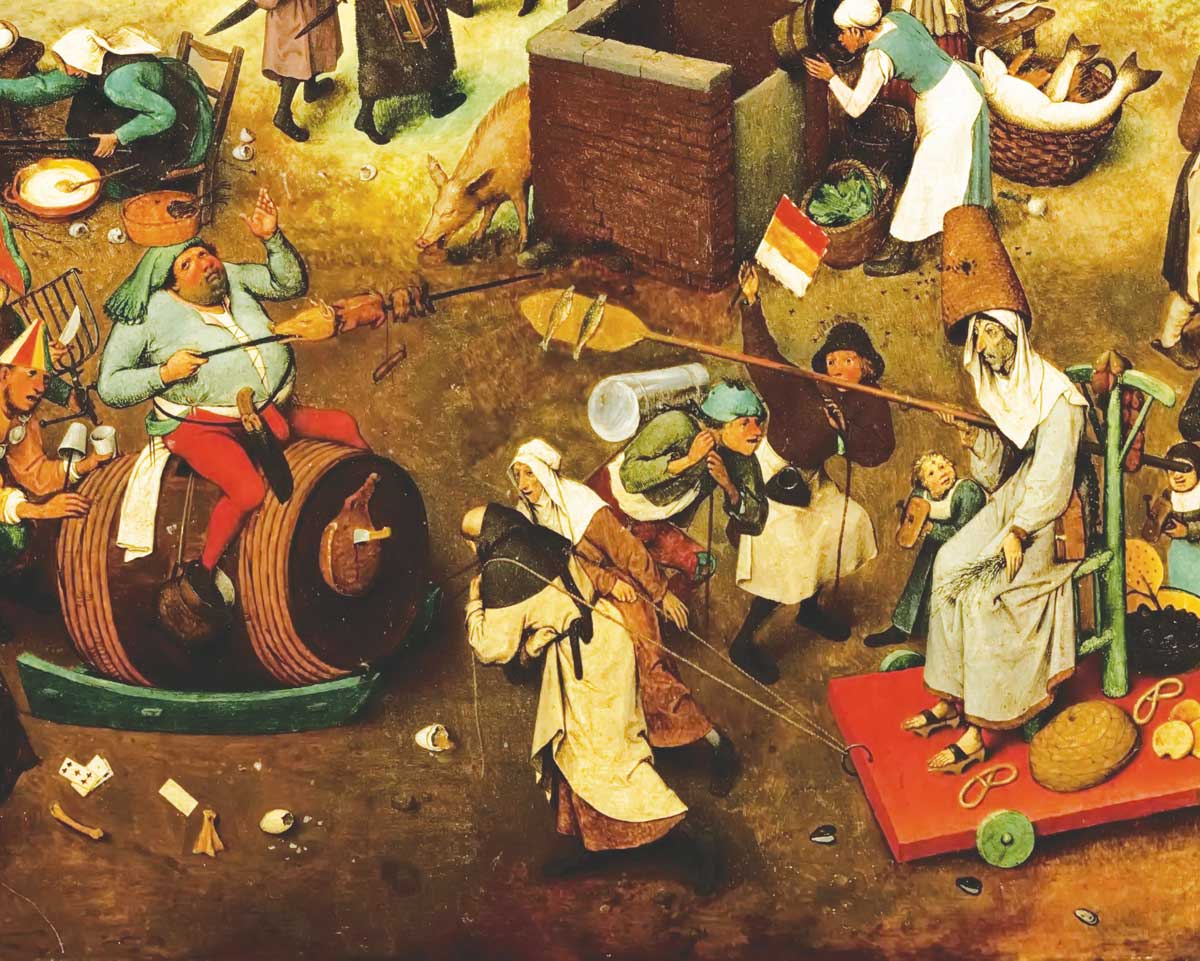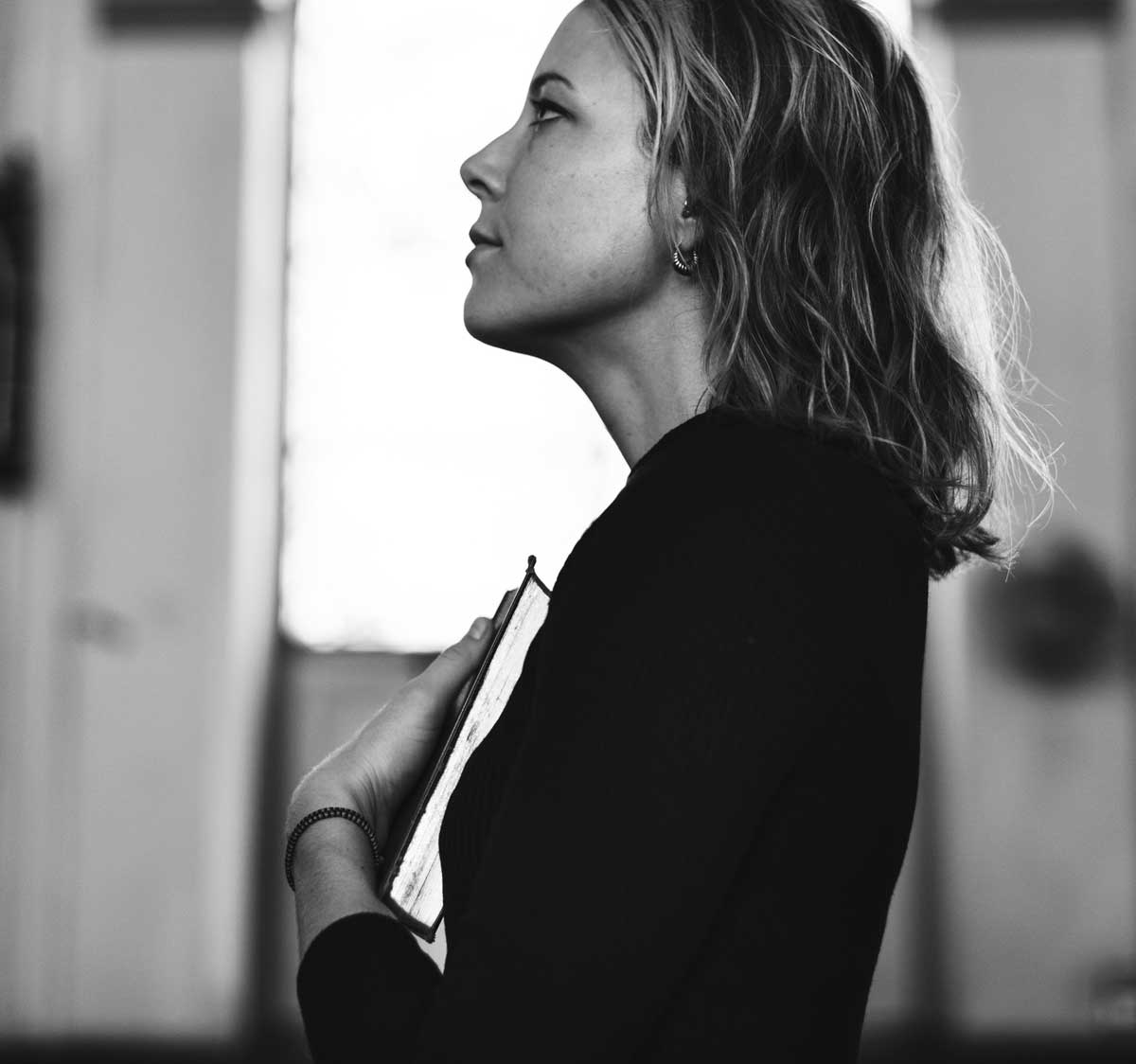View
Creed & Coleridge
Louis Markos on the Necessary Limits on the Wandering Christian Mind
How far is too far? The Nicene Creed is clear about the Trinity, the Incarnation, the Atonement, and the Resurrection, but is there any leeway for free and speculative thought in the interstices between those central doctrines? To what extent can the Christian, to borrow a line that William Wordsworth used of Isaac Newton, voyage on "strange seas of thought," yet still return safely to the port of orthodoxy? Given the increasing number of Christians who feel no compunction about bending the Scriptures to fit their own "progressive" notions about God, man, and the universe, this question is not merely an academic one.
How far, then, is too far?
To answer that question, I would like to offer up a model for the wandering Christian mind that explores, and navigates, its possibilities and its limits, its joys and its dangers. I take that model, not from a book of philosophy or theology, but from a 200-year-old poem composed by Wordsworth's friend and fellow Romantic poet, Samuel Taylor Coleridge. In "The Eolian Harp," Coleridge, who matured into one of the finest Christian thinkers of the nineteenth century, muses on and wrestles with the beauties and mysteries of the universe. Without cutting himself adrift from the moorings of orthodoxy, the poet bravely allows his mind to wander over uncharted seas.
"The Eolian Harp" is generally considered to be the first of Coleridge's "Conversation Poems," a group of highly personal lyrics that attempt to give poetic shape to that most insubstantial of things: the mind thinking. In these poems, it is the thought itself, and the force of mind behind it, that gives unity and balance to the poem, and not vice versa; though each of the poems has a different setting and expresses different ideas and different moods, they all share a common joy in the actual process of thinking and celebrate the ability of the human mind to make associations and to fuse idea with idea, image with image.
On the Ship of Meditation
As the poem opens, we discover the poet in a homely, domestic setting, sitting quietly on his front porch with his silent, pensive wife at his side. The poet looks out from his porch onto a pastoral, almost Edenic world of peace and harmony, a "world so hushed!" that even "The stilly murmur of the distant Sea / Tells us of silence" (10–12). But then, slowly, rising and falling in the stillness of the evening, Coleridge discerns the sound of an Eolian (wind) harp:
And that simplest Lute,
Placed length-ways in the clasping casement, hark!
How by the desultory breeze caressed,
Like some coy maid half yielding to her lover,
It pours such sweet upbraiding, as must needs
Tempt to repeat the wrong! And now, its strings
Boldlier swept, the long sequacious notes
Over delicious surges sink and rise,
Such a soft floating witchery of sound
As twilight Elfins make, when they at eve
Voyage on gentle gales from Fairy-Land. (12–22)
The mind of the poet is caught up in the swelling sound and begins, too, to rise and fall, entranced by a music not made by human hands. It is as if, for a moment, his mind joins in a deeper harmony, is caressed and played on, like the harp, by a force and a motion invisible to the eye.
Inspired and uplifted by this bodiless force, the poet leaves behind his mundane, concrete setting to voyage on his ship of meditation:
O! the one Life within us and abroad,
Which meets all motion and becomes its soul,
A light in sound, a sound-like power in light,
Rhythm in all thought, and joyance everywhere—
Methinks, it should have been impossible
Not to love all things in a world so filled;
Where the breeze warbles, and the mute still air
Is Music slumbering on her instrument. (26–33)
Entranced as he is by the airy melody of the harp and by the correspondent harmony that he feels rising up from the core of his being, it is natural that the poet should move, by the power of association, into this fervent celebration of the unity and beauty of all life.
Perhaps, he muses, there is a kind of living force, a deeper, unseen rhythm that pervades and impels all light, all motion, all sound. Perhaps, too, this "one Life" possesses magical properties, the power to fuse opposites, to discern and promote sameness in difference, similitude in dissimilitude: light in sound and sound in light. And perhaps, most wonderfully, this Life that the poet perceives flowing now from the harp, now from himself, dwells in the presence and shares in the essence of joy. If so, then, to quote another Romantic poet, William Blake, "everything that lives is holy," and one cannot help but "love all things."
Venturing Too Far
But the poet does not stop here; his mind cannot help but draw out its speculations to their logical (and emotional) end:
And what if all of animated nature
Be but organic Harps diversely framed,
That tremble into thought, as o'er them sweeps
Plastic and vast, one intellectual breeze,
At once the Soul of each, and God of all? (44–48)
Again, by the power of association, the poet's mind leaps to a grand vision, a daring myth that would transform the simple wind harp into a universal metaphor, a cosmic symbol for what we all are.
What if, he muses, all living things, from plants to beasts to men, are but so many harps over which blows the same "intellectual breeze." And what if this sweeping, plastic breeze—plastic because fluid, able to change and alter its shape so as to flow over and in and through all things—is, in reality, not only the life and the inspiration of all that lives, but the soul and the God as well. Or, to quote Tom Joad, the hero of The Grapes of Wrath: "maybe . . . a fella ain't got a soul of his own, but on'y a piece of a big one."
But now the poet has gone too far in his mental wanderings. He has left behind Christian orthodoxy, with its belief in a transcendent God who created the world but is separate from it, and has ventured into the realm of pantheism, with its belief in an immanent God that dwells in and is finally equivalent to the natural world. For the Christian doctrine of the resurrection of the body and the integrity of each individual human soul he has substituted the more pantheistic notion of the One Soul. The poet is in grave danger of so diluting the creeds of the Christian faith as to render them meaningless, of accommodating the eternal truths of the Trinity and the Incarnation to a loose, sentimental, non-threatening conception of deity that makes for good poetry but hardly squares with the majestic, sovereign God of the Bible.
Drawn Back to Safe Harbor
But the danger is averted. Coleridge, well-grounded in the core beliefs of his faith, does not end his poem on this aesthetically high but doctrinally low note; rather, he concludes:
But thy more serious eye a mild reproof
Darts, O belovéd Woman! nor such thoughts
Dim and unhallowed dost thou not reject,
And biddest me walk humbly with my God.
Meek Daughter in the family of Christ!
Well hast thou said and holily dispraised
These shapings of the unregenerate mind;
Bubbles that glitter as they rise and break
On vain Philosophy's aye-babbling spring.
For never guiltless may I speak of him,
The Incomprehensible! save when with awe
I praise him, and with Faith that inly feels;
Who with his saving mercies healéd me,
A sinful and most miserable man,
Wildered and dark, and gave me to possess
Peace, and this Cot, and thee, heart-honoured Maid! (49–64)
The stunning move that Coleridge makes here at the end of his poem, a move that carries the lyric full circle back to its beginning, is neither cowardly nor obscurantist—if it were, Coleridge would either not have published the poem or would have removed from it the five pantheistic lines quoted above.
On the contrary, it is profoundly Christian, a testament to Coleridge's love of and devotion to truth and to the God who is Truth. As a free-thinking Romantic poet of a Platonic bent, Coleridge will press his thoughts and vision to the limit, hoping therein to uncover secrets and mysteries that even the angels long to look into; as a Christian, he will control his desire, lest the fruit of knowledge he longs to pluck prove to be the forbidden one.
Assured in his freedom in Christ, Coleridge will speculate, but within set boundaries; he will take great joy and pleasure in the exercise of his "mental muscles," but, when gently rebuked, will humbly confess that all his musings are but ephemeral soap bubbles in the face of the Incomprehensible. And of course, the very existence and meaning of the poem turns on that one word, "Incomprehensible." For, if God is beyond our understanding, then truly is human philosophy vain, a mere phantom of the fallen mind; and yet, at the same time, if God cannot be known, then he must be sought with every power that our limited, fallen intellect can muster.
The Paradox of the Incarnation
The paradox calls up for me historical reminiscences of those Desert Fathers of old who, though they taught that God wholly transcended our comprehension, yet devoted their lives to achieving a mystical union with that very God they said was incomprehensible. It is, in short, the paradox of the Incarnation: that the God who has never at any time been seen by man, has been communicated to us through Jesus Christ, the Incarnate Word of God (John 1:18).
The poem ends on a twin note of praise and thanksgiving, of awe and gratitude to the One who saves and heals. Just so, the Christian, after he has wandered far on the wide and lonely seas of thought, must ever return to the safe harbor of Christ's love and forgiveness. He must know and confess that, despite all our carefully reasoned apologetics and all our systematic theology, it is, finally, the "Faith that inly feels" that convinces us of the reality of the Triune God and the Incarnate Son.
It is my hope that modern Christians, especially my fellow academics, will not allow their freedom to think and feel and express themselves to draw them away from the harbor of orthodoxy into the watery abyss outside. Still, may we all, within the proper boundaries, have the courage to voyage and explore.
Louis Markos , Professor in English and Scholar in Residence at Houston Baptist University, holds the Robert H. Ray Chair in Humanities. His 19 books include Lewis Agonistes; Restoring Beauty: The Good, the True, and the Beautiful in the Writings of C. S. Lewis; On the Shoulders of Hobbits: The Road to Virtue with Tolkien and Lewis; and From A to Z to Narnia with C. S. Lewis.
subscription options
Order
Print/Online Subscription

Get six issues (one year) of Touchstone PLUS full online access including pdf downloads for only $39.95. That's only $3.34 per month!
Order
Online Only
Subscription

Get a one-year full-access subscription to the Touchstone online archives for only $19.95. That's only $1.66 per month!
bulk subscriptions
Order Touchstone subscriptions in bulk and save $10 per sub! Each subscription includes 6 issues of Touchstone plus full online access to touchstonemag.com—including archives, videos, and pdf downloads of recent issues for only $29.95 each! Great for churches or study groups.
Transactions will be processed on a secure server.
more on poetry from the online archives
more from the online archives
calling all readers
Please Donate
"There are magazines worth reading but few worth saving . . . Touchstone is just such a magazine."
—Alice von Hildebrand
"Here we do not concede one square millimeter of territory to falsehood, folly, contemporary sentimentality, or fashion. We speak the truth, and let God be our judge. . . . Touchstone is the one committedly Christian conservative journal."
—Anthony Esolen, Touchstone senior editor





